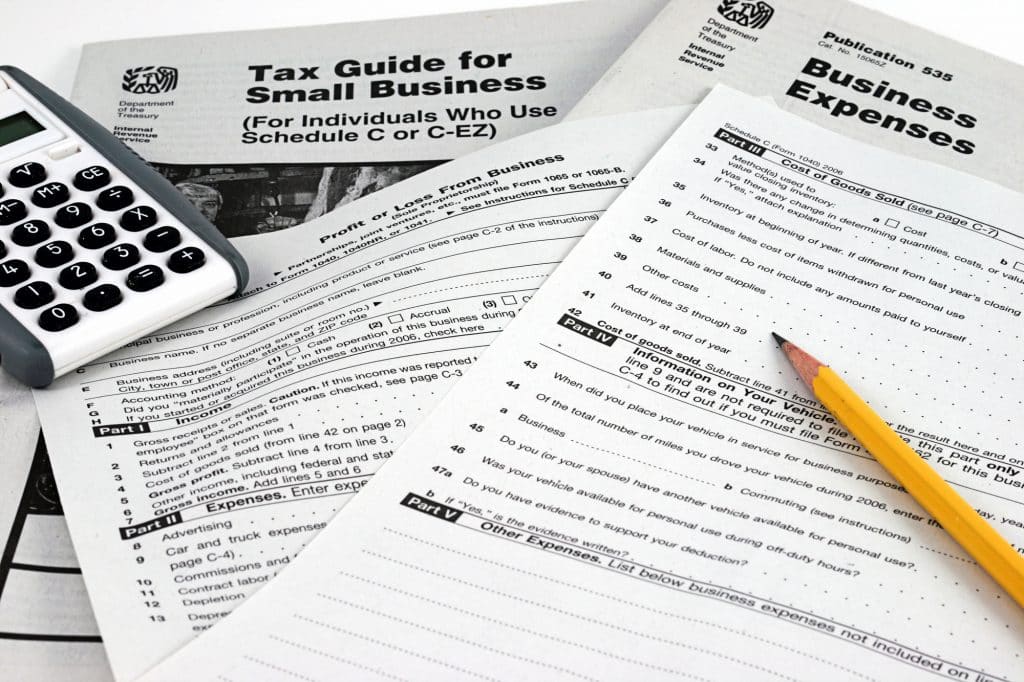Managing your small business finances requires skill and resilience. While navigating daily operations may feel like second nature, tax season can often present new challenges. Deciphering tax codes, deadlines, and forms can feel daunting, leaving many entrepreneurs overwhelmed.
This guide aims to be your reliable companion on this journey. It will provide practical strategies and clear insights to help you confidently traverse the tax landscape. Instead of last-minute scrambles and panic, it will equip you with the knowledge and tools needed to maximize deductions, meet deadlines calmly, and emerge feeling prepared and accomplished.
Forget the anxiety and frustration often associated with tax season. It’s time to work together to transform it into a well-charted course, paving the way for a smoother, more prosperous year ahead. So, take a deep breath, put down the stapler, and join this informative journey.
Understand Your Tax Obligations

Understanding your obligations is essential for making informed financial decisions and maximizing your bottom line. You’ll encounter a spectrum of federal, state, and local taxes depending on your:
- Business type – Sole proprietorship, LLC, C-corporation, etc., each has distinct tax implications.
- Business structure – Your location and operational structure influence which taxes apply.
- Income and expenses – The nature of your business activities determines your specific tax liabilities.
Here’s a breakdown of some standard taxes for small businesses:
- Income tax – This tax applies to your business’s net income. You’ll report this on your personal or corporate tax return, depending on your structure. Throughout the year, you may need to make estimated tax payments.
- Self-employment tax – This covers Social Security and Medicare contributions for self-employed individuals. You must pay this tax if you report more than USD$400 of net earnings from self-employment on your tax return.
- Employment tax – If you have employees, you’re responsible for withholding and depositing taxes from their wages for Social Security, Medicare, and federal unemployment. These are then reported and paid on your business tax return.
- Sales tax – This tax applies to the sale of goods and services in your state or locality. You’re responsible for collecting and remitting it if you sell taxable products or services. Registering for a sales tax permit and filing returns are essential.
- Property tax – This tax is levied on the value of real and personal property used for your business. Whether you own or lease, you’ll typically pay this tax to your local authority annually.
These are just some examples, and additional taxes like excise, franchise, or gross receipts may apply depending on your unique circumstances. Therefore, a thorough understanding of your specific tax obligations is crucial.
If cruising this landscape feels daunting, consider seeking guidance from a reputable professional like Raleigh CPA or similar firms. They can help you determine your exact tax liabilities, optimize deductions, and ensure compliance with regulations, providing the support you need to approach tax season with assurance.
Be Organized
The influx of paperwork, looming deadlines, and complex regulations can quickly lead to stress and disorganization. However, by implementing practical strategies, you can simplify your tax season experience and handle it confidently and efficiently.
- Implement a robust record-keeping system – Establish a transparent system for physical and digital documents. Label folders and binders consistently, categorize receipts and invoices, and consider investing in cloud storage solutions for secure digital document archiving.
- Leverage technology solutions – Embrace the power of technology to streamline your tax preparation process. Explore user-friendly accounting software to track expenses, generate reports, and file taxes electronically.
- Foster proactive habits – Consistency is critical to maintaining order throughout the year and preventing last-minute chaos. Develop a routine for reviewing finances, updating accounts, and organizing paperwork. Dedicate a specific time each week or month to these tasks, ensuring you remain prepared for upcoming deadlines.
Remember, organization and efficient planning are your allies in conquering the complexities of tax season. So, equip yourself with the right tools, embrace technology, and prioritize consistency to navigate this yearly journey with confidence and ease.
Take Advantage Of Deductions
As a small business owner, every penny counts, and minimizing your tax burden is crucial to financial success. Fortunately, many deductions exist to reward your investments and operational expenses. Transforming these costs into valuable tax savings requires identifying and claiming them effectively. You may do the following:
- Identify essential expenses – Explore standard deductions like office supplies, rent, utilities, travel, marketing, and equipment. Depreciation allows you to spread the cost of long-lasting assets over their lifespan, reducing your taxable income.
- Leverage industry-specific perks – Use specialized deductions relevant to your industry. Construction companies might utilize tool and material deductions, while software developers benefit from research and development credits.
- Maximize your impact – Research government initiatives and tax breaks relevant to your business location or goals. Green energy investments, hiring incentives, and employee health plan deductions can further optimize your tax savings.
Don’t let valuable deductions remain buried! Actively researching, meticulously tracking expenses, and consulting with a tax professional if needed can unlock hefty savings every tax season.
Be Familiar With Deadlines And Extensions
Another essential factor for navigating tax season is being familiar with deadlines and extensions. Deadlines are when you must file and pay your taxes or face penalties and interest. Extensions are the options that allow you to postpone your filing or payment under certain circumstances and conditions.
The deadlines for filing and paying your taxes depend on your business structure, tax year, and location. For example, the general deadline for filing and paying your federal income tax is April 15 unless it falls on a weekend or a holiday, in which case it is the next business day. However, if your business is a partnership or an S corporation, the deadline is March 15. If your business operates in a state or locality that imposes income tax, you may also have to file and pay your state and local taxes by a different date.
If you can’t file or pay your taxes by the deadline, you can request an extension, giving you more time to prepare and submit your tax return or arrange and make your tax payment. However, an extension doesn’t relieve you from your tax obligations, and you may still incur penalties and interest if you file or pay late. Therefore, you should only use an extension as a last resort, not a habit.
Know How To Address Common Challenges
While preparation and organization are critical to a smooth tax season, even the most diligent business owners can encounter challenges. Here are some common tax filing obstacles and practical steps to overcome them:
- Audit concerns – Receiving an audit notification can be unnerving, but remember, it’s simply a review to ensure accuracy. Maintaining complete and organized records is crucial. Consult a tax professional if needed for guidance and representation.
- Filing Errors: Mistakes happen, but you can rectify them. Identifying and correcting errors on your tax return early helps minimize penalties and delays. Utilize online resources or professional assistance for accurate filing.
- Late payments – Missing a tax deadline is unfortunate, but prompt action is crucial. Late payment penalties accrue quickly. Contact the IRS or state authorities immediately to discuss payment options and explore potential penalty relief.
- Unfamiliar regulations – Tax laws and regulations can be complex and subject to change. Stay informed about relevant updates and seek guidance from qualified tax professionals for navigating unfamiliar territory.
Addressing challenges minimizes stress and ensures a smoother tax season journey. Preparation, meticulous record-keeping, and timely action are your allies in facing these obstacles and emerging victorious.
Final Thoughts
Tax season need not be a hurdle. For the prepared entrepreneur, it’s an opportunity to seize control of your financial destiny. You’ve acquired the knowledge you need to conquer this tax season effortlessly. Now, it’s time to transform this knowledge into purposeful action, solidifying your position as the master of your financial domain.






